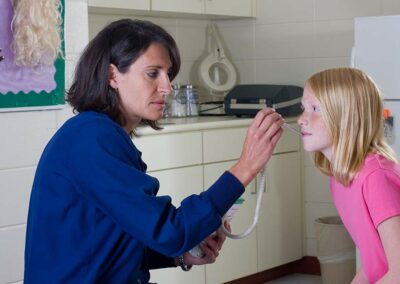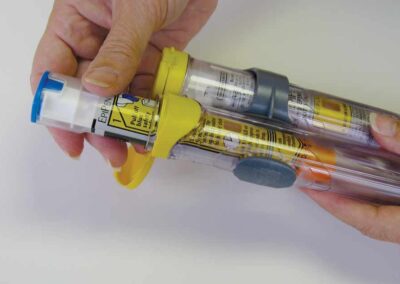Advocacy and Public Policy
Advocacy Action Center
Key Issues
Laws
Become an Advocate
Take Action
Find Legislator
AADCH
Current Federal Campaigns
Why does Allergy & Asthma Network Advocate for Patients?
Advocating for patients has been a core part of our mission since Allergy & Asthma Network was founded over 35 years ago. With millions of Americans living with allergies, asthma and related conditions, we seek to ensure that federal and state laws, policies, regulations and resources support our role in achieving optimal health outcomes for people living with these chronic conditions.
The patient’s voice is also an important aspect of our advocacy work. Our patient advocates play a crucial role in raising awareness, educating policymakers and the general public, removing barriers to care and making issues widely known to make medical care and treatment more accessible and effective.

How is Allergy & Asthma Network involved in advocacy?
We foster relationships within federal and state governments to educate on policies that impact patients with allergy, asthma and related conditions, and shape policies that support the health and well-being of patients. Our advocacy work includes meetings on Capitol Hill and in state capitals, communications via letter writing/emails/phone calls, social media outreach, delivery of comprehensive information to key decision-makers, and collaborations with other stakeholder groups.
We also engage our members and volunteers across the country to connect with their federal and state representatives to bring a personal voice and connection to the issues. You have a vital role as a constituent in the development and implementation of public policy.

The Network will continue to work to shape policies that support our patients and we invite you to join us!
How are Patients and Healthcare Providers Involved in Advocacy?
Together with patients, families, healthcare professionals and other stakeholders, we amplify the patient voice, build capacity and make connections at all levels of government and in communities nation-wide. The voice of the patient and those working in healthcare is important to share personal testimonies and expertise to impact policy. We support our advocates who make phone calls, write letters, send emails and participate in in-person meetings with legislators. Grassroot campaigns are also utilized to mobilize our community to contact their legislators about a specific issue from time to time.










